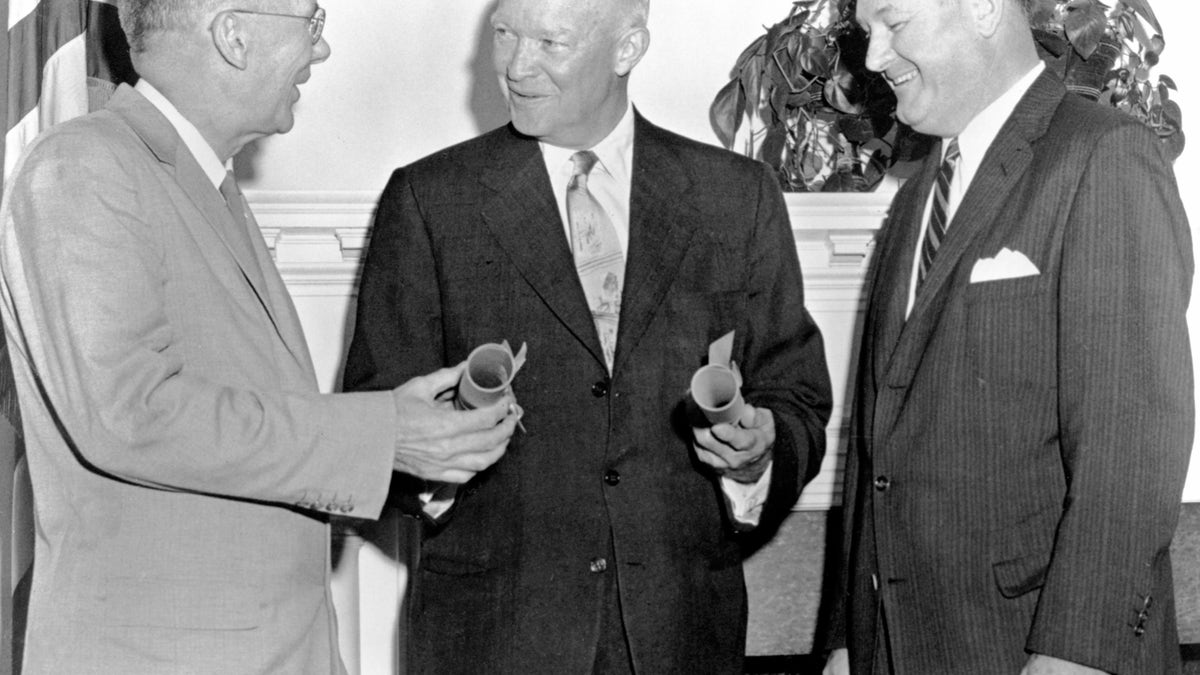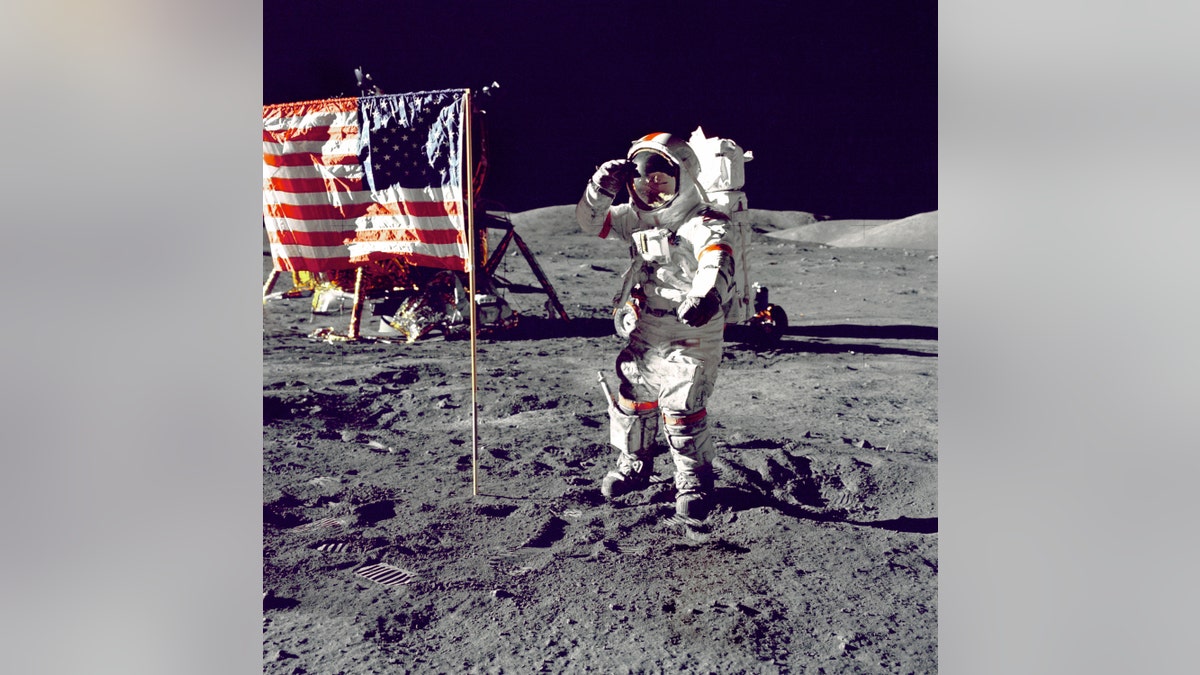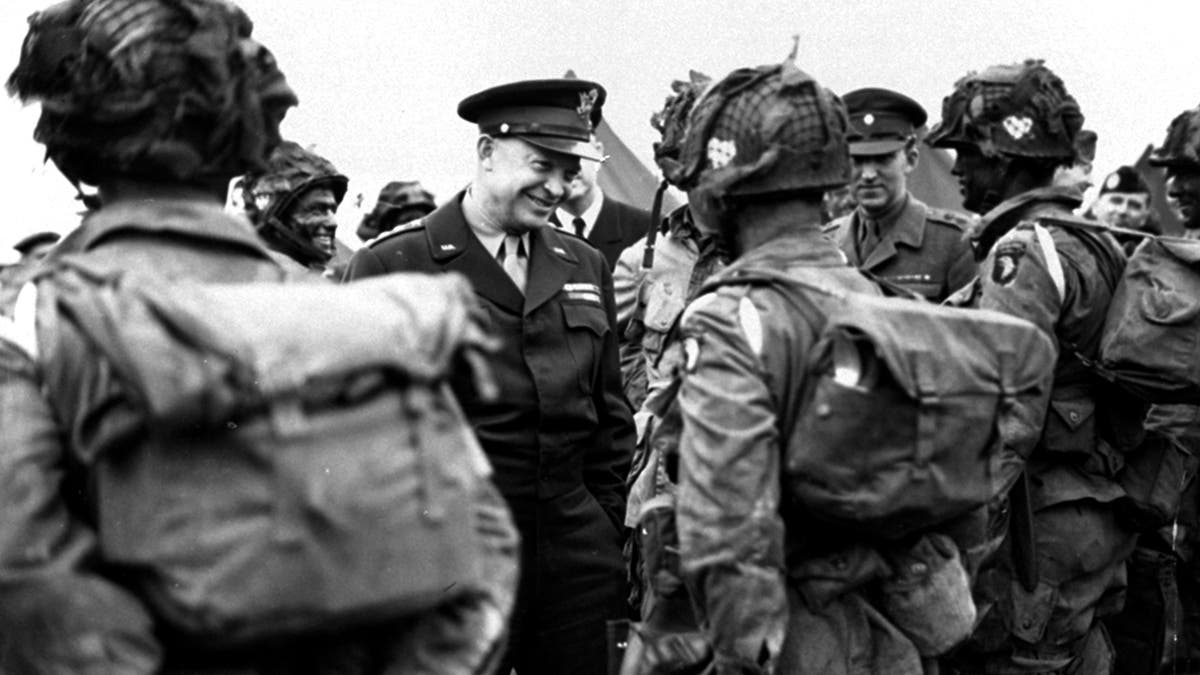America dared to boldly go the place no man had gone earlier than when President Dwight D. Eisenhower signed the Nationwide Aeronautics and Area Act on at the present time in historical past, July 29, 1958.
The laws established the Nationwide Aeronautics and Area Administration (NASA).
The act was a direct response to the success of the Soviet Union’s launch of Sputnik, the primary man-made satellite tv for pc, in October 1957.
The achievement spawned fears within the U.S. and Western Europe of ceding management of the ultimate frontier to the Soviets.
SPUTNIK MOMENTS: TRIO OF SPACEFLIGHT EVENTS SHOOK US IN 1957
These fears, nonetheless actual, have been short-lived.
The creation of NASA spawned American dominance in area and a interval of exploratory achievement unmatched in human historical past.

President Eisenhower with Hugh Dryden and T. Keith Glennan, August 19, 1958. Eisenhower (middle) swears in Dr. T. Keith Glennan (proper) as the primary administrator of NASA, and Dr. Hugh Dryden (left) as deputy administrator. NASA was created to carry out civilian analysis associated to area flight and aeronautics. (Artist NASA) (Heritage Area/Heritage Photos by way of Getty Photos)
NASA shortly executed the Mercury, Gemini and Apollo area packages, every constructing upon the success of the opposite.
NASA loved one of many crowning moments in historical past when Apollo 11 landed American astronauts Neil Armstrong and Buzz Aldrin on the moon on July 20, 1969 — simply 11 years after Eisenhower signed the Area Act.
FIRST MEN ON THE MOON, A UNIQUE AMERICAN ACHIEVEMENT, STILL AMAZES US TODAY
No human has set foot on the moon for the reason that Apollo program led to 1972.

Astronaut Eugene A. Cernan, Commander, Apollo 17, salutes the U.S. flag on the lunar floor throughout extravehicular exercise (EVA) on NASA’s last lunar touchdown mission. The Lunar Module “Challenger” is within the left background behind the flag and the Lunar Roving Car (LRV) can also be in background behind him. Cernan was the final man to stroll on the moon with the completion of the Apollo program. (Heritage Area/Heritage Photos by way of Getty Photos)
The creation of NASA joins the quick listing of Eisenhower’s biggest achievements — first a basic after which president. He stands among the many most consequential people in American historical past.
D-DAY 78 YEARS LATER: HOW FDR’S POWERFUL PRAYER UNITED AMERICANS
As Supreme Allied Commander in World Struggle II, Eisenhower tactfully saved collectively a coalition of American, British and French leaders regardless of clashing egos and conflicting private and nationwide goals.

Basic Eisenhower offers the order of the day, “Full Victory – Nothing Else” to paratroopers in England simply earlier than they board their planes to take part within the first assault within the invasion of the continent of Europe. (U.S. Military Sign Corps Picture by way of AP)
He orchestrated the June 6, 1944, D-Day invasion of Europe, arguably the best single logistical and army achievement in human historical past.
And he led the full defeat and army disintegration of Nazi Germany in lower than 3.5 years after America’s entry into the battle.
For extra Life-style articles, go to www.foxnews.com/life-style
His two-term presidency (1953-1961) proved a interval of unprecedented American peace, prosperity and international hegemony.
CLICK HERE TO GET THE FOX NEWS APP
Notably, he ended America’s involvement within the Korean Struggle in 1953, created the U.S. Interstate Freeway System in 1956 and signed the Civil Rights Act of 1957.
Then, in 1958, he impressed a daring new period of human exploration, this time of the cosmos.







